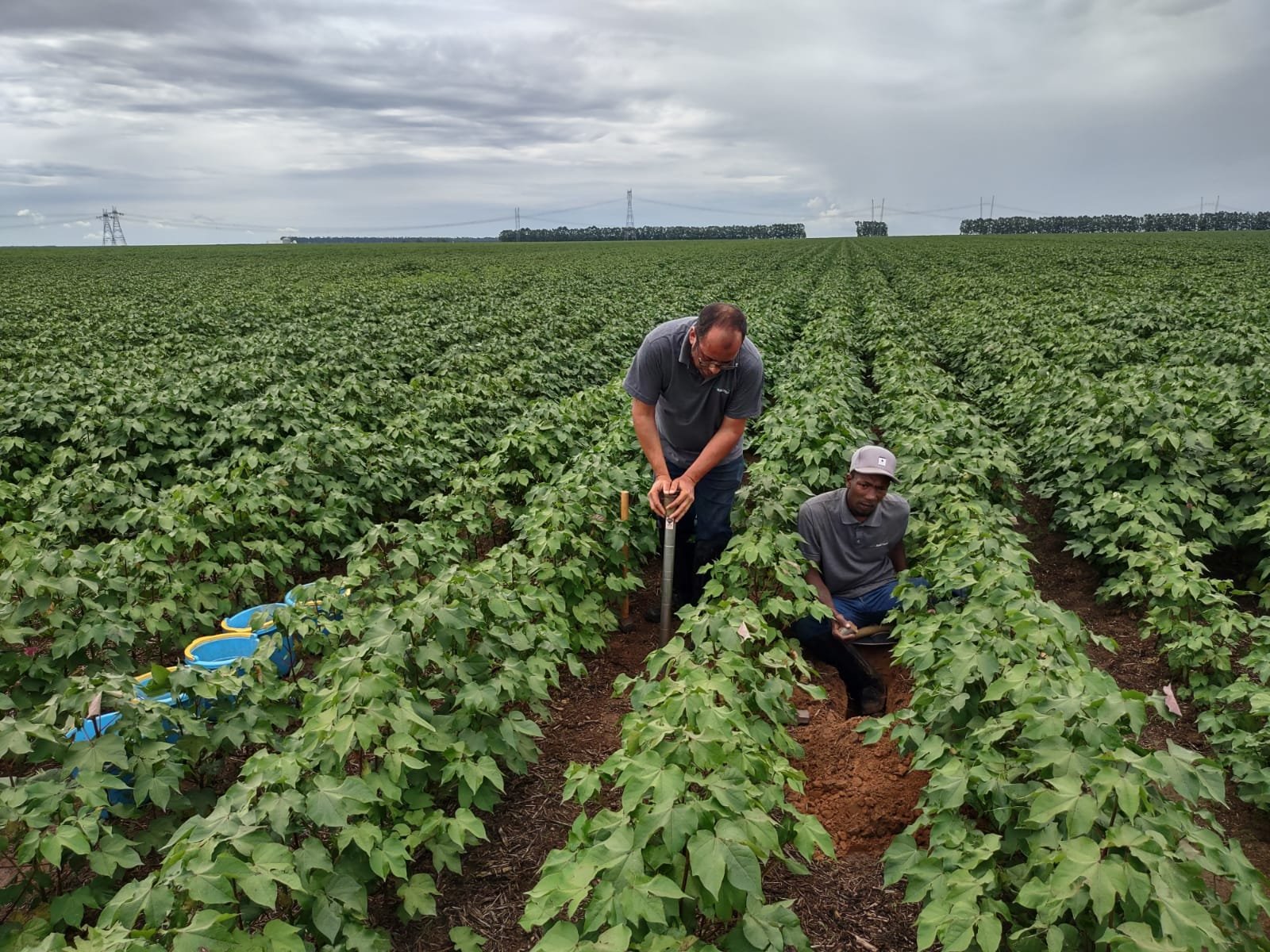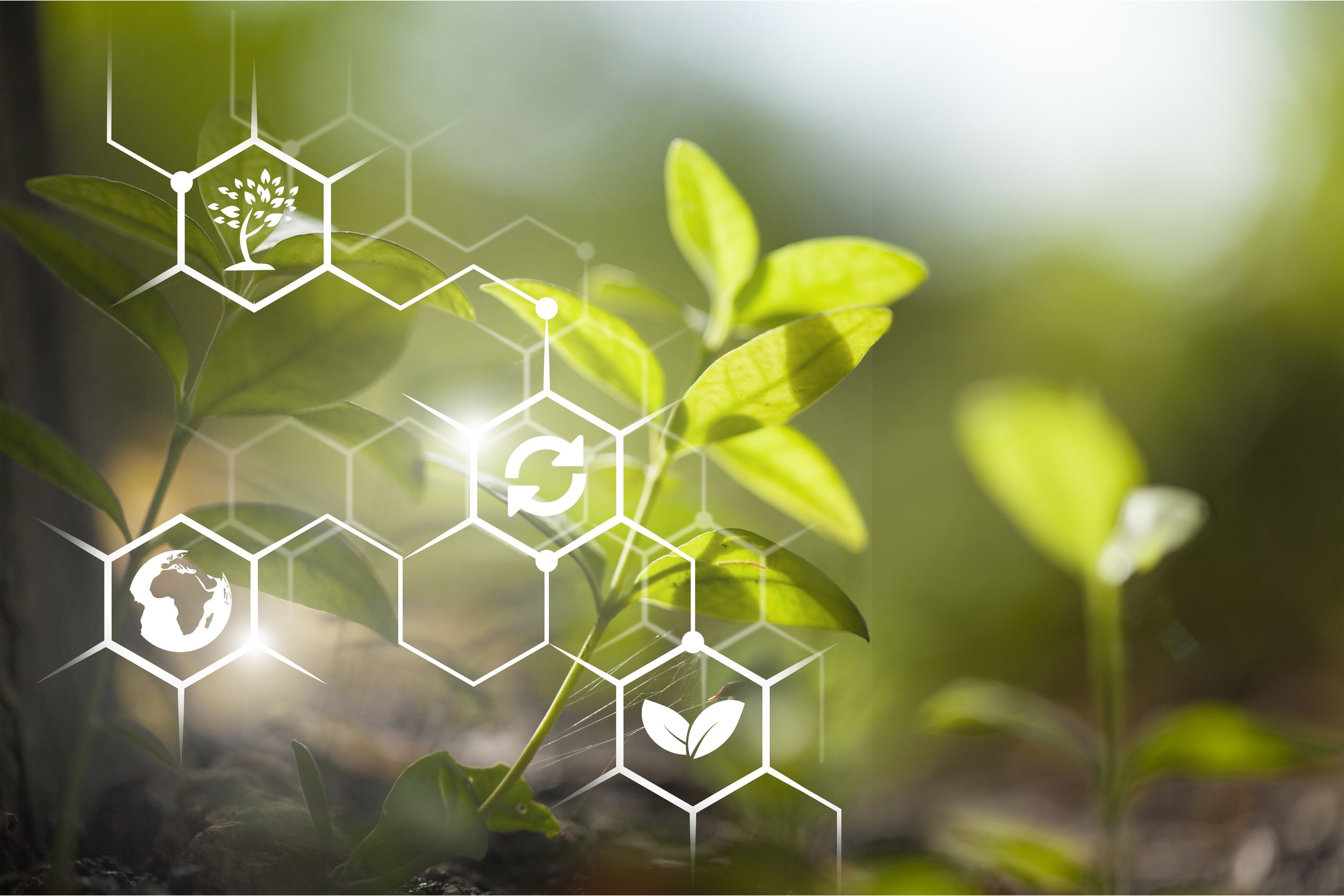Startup uses NASA technology to measure soil carbon stock in Western Bahia
Selected by the Sustainable Soy for the Cerrado Program, Agrorobótica monitors the impacts of sustainable practices for carbon sequestration and higher yields on farms.
Soy farm at Western Bahia. Image provideb by Agrorobótica.
From robots exploring the surface of Mars to the soil of Bahia: the startup Agrorobótica will apply NASA's photonics technology to analyze different soil conditions for soy crops and to enable local farmers to enter the carbon credit market. Data collected in the field will feed the AGLIBS artificial intelligence platform to build a carbon baseline for one of the regions with Brazil's highest agricultural yields. Agrorobótica is now in the portfolio of the Sustainable Soy for the Cerrado Program – set up by the AgTech Garage and the Land Innovation Fund, with strategic support from Embrapii – and was one of the companies selected for funding by the Startup Finance Facility, a pioneering initiative to manage and foster novel solutions for a sustainable soy supply chain, free of deforestation and conversion of native vegetation in South America. With this support, the startup will be able to collect 2,200 quantitative and qualitative carbon samples, and 550 soil density and texture samples from western Bahia, to produce a greenhouse gas inventory of the region.
As the planet's main carbon sink, second only to the oceans, the soil stores more carbon than the atmosphere or plants. Farmers’ conservation practices, the recovery of degraded pastures, biological nitrogen fixation and adequate soil management, among other techniques, all capture carbon and reduce greenhouse gas emissions, the core objective of the Paris Agreement. The global goal is to increase carbon stock in the soils of the member countries by 0.4%. Brazil has committed to reducing its greenhouse gases emissions by 50% by 2030 and to net zero by 2050, in addition to containing deforestation and reforesting or restoring up to 12 million hectares throughout the country. Investments in technology, products or services that contribute to expanding sustainable agricultural systems are essential to reduce CO2 and other greenhouse gas emissions into the atmosphere.
"Agrorobótica's initiative helps recognize good agricultural practices and mitigate global warming caused by GHG emissions from farms, and it can also offer economic gains to farmers who adopt sustainable practices. Innovation provides direct and indirect benefits, for both the farm and the environment, and also aligns farmers in Western Bahia closer to international demand for carbon-neutral policies. For all these reasons, this initiative was one of those chosen for funding by the Startup Finance Facility, to scale up this solution in one of the country's most important agricultural hubs," says Carlos E. Quintela, director of the Land Innovation Fund.
"The global challenge for the carbon market in agriculture is to deploy technologies that can measure, report and verify (MRV) carbon on farms in an auditable manner, with quality, scalability and affordability. Creating protocols that measure and monitor on-farm emissions is a first step to enable financial mechanisms that benefit farmers and encourage the use of good agricultural practices", says Fabio Angelis, CEO and founder of Agrorobótica.
Agrorobótica will analyze four different soil scenarios in Western Bahia: degraded pastures, native vegetation, conventional management, and sustainable management on soy farms. The survey will also analyze the farms' environmental compliance and measure soil fertility, to help reduce farmers' costs with fertilizers and boost yields through sustainable agricultural practices. "The global challenge for the carbon market in agriculture is to deploy technologies that can measure, report and verify (MRV) carbon on farms in an auditable manner, with quality, scalability and affordability. Creating protocols that measure and monitor on-farm emissions is a first step to enable financial mechanisms that benefit farmers and encourage the use of good agricultural practices", says Fabio Angelis, CEO and founder of Agrorobótica.
In Western Bahia, data collection began on a soy, corn, and cotton farm with no-till farming and pivot irrigation. The plan is to bring more farmers into the survey and adopt the AGLIBS platform on their holdings, to expand a baseline scenario for carbon calculations in the region. The equipment does a quick and efficient soil analysis, using laser technology, with no chemical reagents to harm the environment. The technique is the same used by Curiosity, NASA's rover now exploring for water on Mars. The farmer receives data along with agronomic recommendations through a cell phone application. "The tool adds value for farmers, who can measure soil fertility, leaf nutrients and the amount of carbon on their land, while benefiting from financial mechanisms that reward their reduction of greenhouse gas (GHG) emissions," adds Angelis.
About the Startup Finance Facility:
Besides Agrorobótica's novel solution, two other proposals chosen by the Sustainable Soy for the Cerrado Program are also funded by the Startup Finance Facility: HyperT, an integrated traceability, monitoring and carbon-credit platform designed by AgTrace, BrCarbon, BrainAg, and One and a Half Degrees; and Protege Cerrado, a carbon-offset initiative promoting environmental conservation and restoration, by startups Plantem and Forestmatic. Funded by the Land Innovation Fund, with expertise from AgTech Garage, the Startup Finance Facility has R$2.2 million available to catalyze development, testing, and implementation of innovative solutions that bring intelligence, reliability, and sustainability to the soy chain in the Cerrado biome, with the possibility of increasing revenue through the entry of new partners interested in supporting this innovation ecosystem for sustainable agribusiness.
Read more: Unprecedented initiative to support sustainable startups’ proposals for the Cerrado.
About the Sustainable Soy for the Cerrado Program:
Set up by a partnership between the AgTech Garage innovation hub and the Land Innovation Fund, with strategic support from Embrapii, the Sustainable Soy for the Cerrado Program (PSSC) seeks to link the agribusiness ecosystem to innovations that bring positive economic and socio-environmental impacts to the Cerrado biome’s soy supply chain. In the PSSC's first two cycles, ten startups were selected for mentoring and participation in AgTech Garage's innovation ecosystem hub, with projects on environmental monitoring technologies, soil analysis and treatment, ecological restoration techniques, artificial intelligence, big data solutions, carbon quantification methodologies, and traceability technologies, among others.


